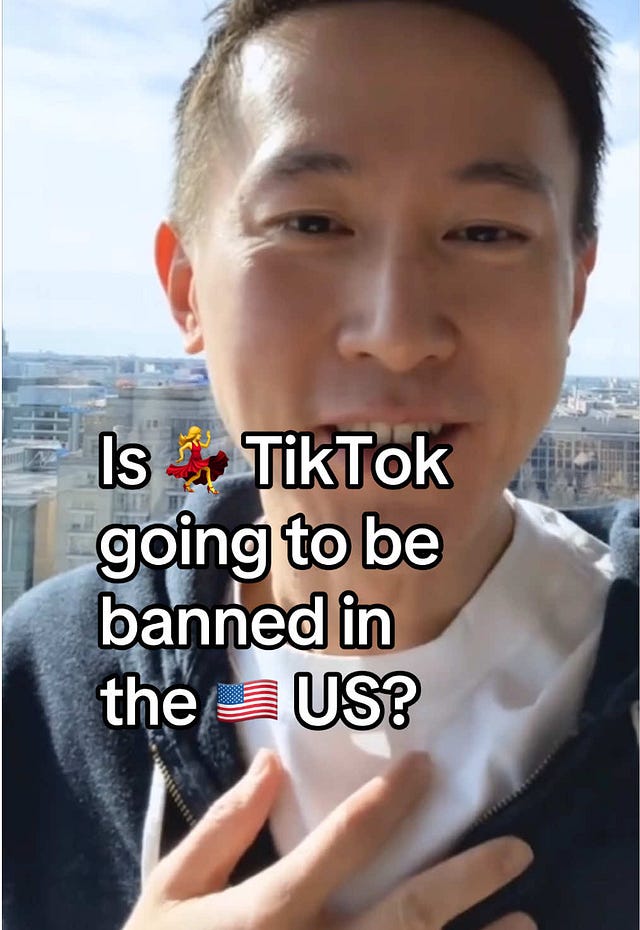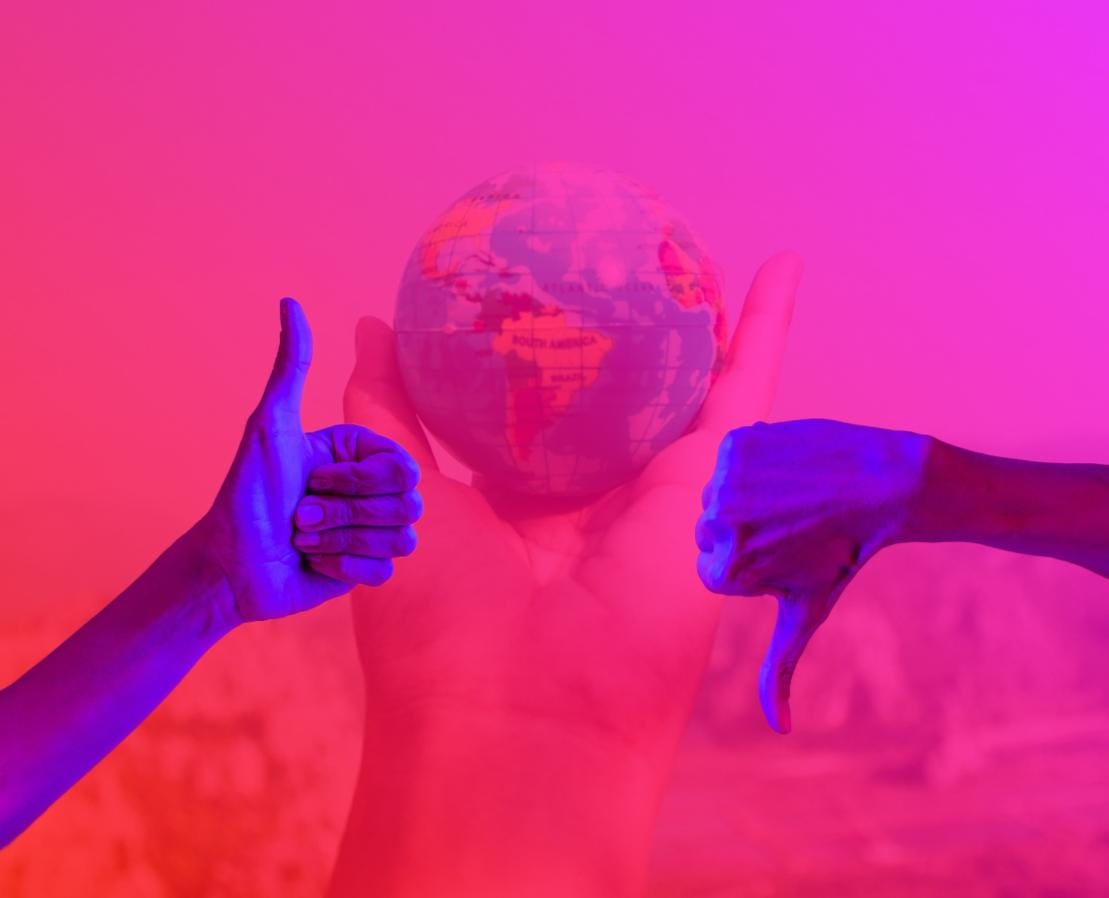The Top 5 Moments in 2024
Let's start 2025 with a deep dive into how 2024 contributed to the growth of digital diplomacy and social media for politics and diplomacy.
💬 Quick CONVERSATION STARTERS:
Happy New Year everybody!
👍 Are selfies back?
Yes! And Italian Prime Minister Giorgia Meloni brought them back in 2024!
“Hello from the ‘Melodi’ team,” Meloni posted on social media after taking a selfie with Indian Prime Minister Narendra Modi in June 2024, on the sidelines of the G7 Summit in Puglia, which the Italian Prime Minister hosted as chair of the G7 for 2024. The two leaders went viral on social media in December last year after taking a selfie at COP28 in Dubai — hashtagged #Melodi by Meloni.
Earlier during the G7 Summit, Meloni took an unexpected selfie with the press at the arrival ceremony of the G7 Summit in Puglia, while waiting for the arrival of US President Joe Biden.
Meloni’s social feed showcases many other selfies with political and business leaders, sports champions — like Italian tennis star Yannik Sinner — as well as during her travels around Italy and the world, including with the public and with Italian troops abroad.
👎 Limiting political content on Meta
Back in February, Meta — the parent company of Instagram, Facebook, and Threads — announced they were limiting political content on their platforms, by stopping recommending political content from accounts that users don't already follow.
The change has caught even the most online off guard, with many users criticizing Meta for taking such a drastic decision — a de facto ban — in a year when the US, the European Union, and several other countries were holding pivotal elections — and for doing so with relatively little warning.
Many noted that Meta’s definition of political content — “potentially related to things like laws, elections, or social topics” — appears rather broad, and would drastically impact content related not only to elections, but also regarding climate, technology… But also diplomacy!
In fact, on Instagram, Meta defines political content as “content that mentions: Governments, Elections, Social topics” — it could really be anything.
👍 “All Eyes on Rafah”
In May, this AI-generated image showing tents in a camp and spelling out one single phrase, “All Eyes on Rafah,” was shared almost 50 million times in less than 48 hours on Instagram and other social media platforms.
This single image became the focus of a singular campaign on Instagram that caught the attention of the algorithm and captured the imaginations of millions of users across national borders — a show of support for the Palestinian movement in the war between Israel and Hamas.
“The trend of posting ‘All Eyes on Rafah’ has been something that has been building for a little while,”
, a social media consultant and industry analyst, told NBC. “We’ve seen quite a lot of influencers and celebrities and widely followed people on multiple platforms, not just Instagram, that are sharing the sentiment of this message or an almost identical version of it, which will amp up the reach and visibility across many platforms.”💪 Europe’s focus on Artificial Intelligence
In August, the European Artificial Intelligence Act — also known as AI Act — entered into force with a single aim: to foster responsible artificial intelligence development and deployment in the EU.
Proposed by the European Commission in April 2021 and agreed upon by the European Parliament and the European Council in December 2023, the AI Act addresses potential risks to citizens’ health, safety, and fundamental rights. It provides developers and deployers with clear requirements and obligations regarding specific uses of AI while reducing administrative and financial burdens for businesses.
“The EU will continue to champion innovation at the service of people,” European Commission President Ursula von der Leyen said about the AI Act when it entered into force.
The AI Act introduces a uniform framework across all EU countries, based on what the EU calls “a forward-looking definition of AI and a risk-based approach:”
Minimal risk: most AI systems such as spam filters and AI-enabled video games face no obligation under the AI Act, but companies can voluntarily adopt additional codes of conduct.
Specific transparency risk: systems like chatbots must clearly inform users that they are interacting with a machine, while certain AI-generated content must be labelled as such.
High risk: high-risk AI systems such as AI-based medical software or AI systems used for recruitment must comply with strict requirements, including risk-mitigation systems, high-quality of data sets, clear user information, human oversight, etc.
Unacceptable risk: for example, AI systems that allow “social scoring” by governments or companies are considered a clear threat to people's fundamental rights and are therefore banned.
🫸 Tic toc, tic toc… for TikTok
2024 was not a good year for TikTok as the platform — owned by Chinese company ByteDance — is now challenging two bans which could potentially stop its operations in North America.

 Tiktok failed to load.
Tiktok failed to load.Enable 3rd party cookies or use another browser
With almost 200 million users, North America is the fourth largest market for TikTok. Asia Pacific is the biggest with over 680 million users, followed by Europe with almost 240 million, and Latin America with 207 million.
In the US, the Supreme Court has agreed to hear an appeal by TikTok, which is now facing a ban on January 19, 2025, unless it sells its US operations — and the algorithm.
In the meantime, US President-elect Donald Trump has urged the Supreme Court to block a law that would force the popular social media app to be sold or shut down. Trump told the Justices that a delay would allow his administration to “negotiate a resolution to save the platform while addressing national security concerns.”
In Canada, TikTok's Canadian unit has filed an emergency motion with Canada's Federal Court seeking a judicial review of an order that the company shut down its operations in the country on national security concerns. The app requested the court set aside a government order requiring TikTok to wind-up its business in Canada. Alternatively, it said the court could set aside the order and return it to the government for review along with guidance.
And now…
👍 Our top 7 Substack picks
These are the publications we cherished the most in 2024 — and that we cannot wait to see what they will publish here on Substack in 2025. They all must-reads!














Thank you Andreas - great company to be in!
Thank you, Andreas!!